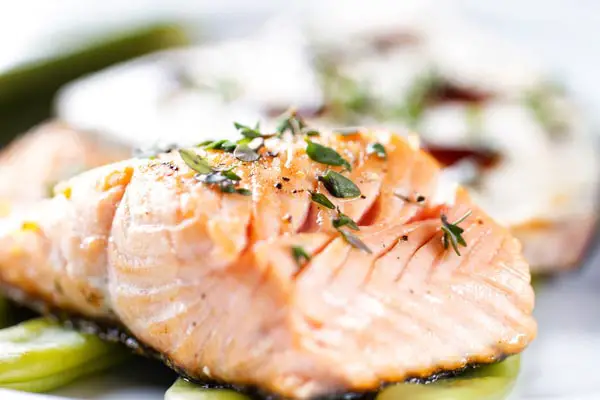Dogs and Oranges: Can My Furry Friend Enjoy Fruit?
As any good pet-lover knows, we want our dogs to be as healthy and happy as possible. After all, dogs are man’s best friend.
There are many myths circulating about what is considered toxic for our puppy friends, and what are okay for them to eat.
For example, it’s fairly common knowledge to keep your doggo away from chocolate. But what about other foods? Chicken? Beef? Fruits? Veggies? Spinach? Grapes?
There are many contradictory words of mouth tales about what is pet-friendly and what is sure to wreak havoc on their system. Today, we’re going to debunk just one of these myths; can your dog eat oranges?
Spot Wants More Than Just Meat!
As you can see in basically any cartoon, most dogs won’t say no to a nice steak. But what a lot of people don’t know is that most dogs really enjoy the fruit.
According to Pet MD, fruits such as blueberries, bananas, and apples can all be a fun and nutritious part of your pet’s diet. Many dogs enjoy the sweet juicy taste of the fruit.
It is important to note though, that some fruits are still incredibly toxic to dogs. For instance, grapes can prove poisonous to your pet. The divide between what a dog can and cannot eat can be confusing, so where do oranges fall?
So… What’s The Deal With Oranges?
Can dogs safely eat oranges? The answer is…well… kinda. According to David Dilmore, a veterinary and medical editor oranges and related fruits (such as tangerines and clementines) are not explicitly toxic to dogs.
Many dogs enjoy the sweetness that oranges provide, and their bodies have the ability to digest the fruit. There is, however, a catch.
This video by Pet MD gives the reader’s digest version about what exactly the deal is with oranges. Show it to your friends and family if they don’t believe you.
Moderation
Although oranges are not toxic to dogs, they are still high in sugar. Because of this, consuming oranges can lead to an upset stomach and GI tract for your dog.
The solution, simply, is to limit how much of an orange that your pet is eating. Giving them a section or two is fine, but the whole thing can lead to upset stomach and eventually obesity from the excess sugar.
The citric acid in these acidic fruits will not harm your dog, but it is important to note that it can harm cats, so if you have multiple pets be weary.
The vitamin C is not an easy either, as your dog’s body is can easily get rid of the excess of this vitamin because it is water-soluble.
But Are Oranges Good For My Dog?
The short answer is basically “kind of”. In some cases, if your dog is overworked or exercising incessantly, the extra vitamin C can definitely benefit them. It really is not essential though.
The nutrients in an orange can benefit your dog’s immune system though, which is a plus. This is particularly true if your pet eats a toxic substance.
The vitamin C can help mitigate the toxicity of whatever is ingested, helping them to pass the substance and move on. Pet owners should also be wary if their dog has diabetes. The spike in sugar in the body from oranges can overwhelm their systems.
Dogs Have a Sweet Tooth Too You Know
Dog treats, while a good method of rewarding your animal and absolutely making their day, can be high in sugars, fats, and calories.
Many times, your animal is craving something sweet. Fruits can take the place of these harmful treats, and boost your pet’s immune system in the process.
While this article focuses on cautionary and carefully measured additions of fruits and vegetables into your pet’s diet, the benefits should not be completely ignored.
Reward your puppy for good behavior or an awesome new trick with a small orange slice. Go ahead, they’ve earned it.
There are even pet treat recipes that feature oranges. Check out this orange cranberry dog treat recipe that is guaranteed to make your dog’s day.
This recipe is simple, easy, and can quickly be prepared at home. Don’t bother with pet store brands of treats that can be more harmful than good for your dog. Rake in the fresh ingredients and start baking for your pup today.
What About The Orange Peel?
As all pet mom’s and dad’s know, sometimes our fur babies get a little too excited about whatever fruit is in front of them. With that, some animals have been known to eat not only oranges but the peels as well.
If this happens, do not panic. According to the American Kennel Club, orange peels are not toxic and will not harm your animal.
The peel itself though is a rough texture. Consuming an orange peel can cause discomfort and pain in your dog’s digestive tract. So, when possible, keep orange peels away from your puppy?
Can Puppies Eat Oranges?
Young puppies can enjoy oranges just like any other dog. According to Petazi, introducing fruits and veggies into your pet’s diet while they are young will help them with their ability to enjoy and digest the foods later in life.
One thing to remember though is that oranges contain a lot of sugar. So if you are planning to feed your puppy oranges, cut the serving size of what you would feed to a regular dog. Just one slice or section of an orange or clementine will be more than enough.
How To Feed Your Dog An Orange
Although we do not recommend feeding the peel of oranges or related fruits to your animal, if you decided to do so it is important that you wash the peel before feeding it to them.
Fruits and vegetables are covered in pesticides and other chemicals, not to mention bacteria picked up in grocery stores and storage.
A quick rinse will help mitigate any icky substances on the outside of the fruit. Next, remove any seeds from the fruit.
While oranges themselves are not toxic, the seeds are not very good for your dog and can increase the likelihood of health issues arising.
The serving size of how much of orange you can feed your dog is as follows: you may give a moderate amount of orange to relatively larger dogs. Smaller dogs and puppies should be given either ⅓ or ¼ of orange depending on their size.
A few Oher Fruits And Vegetables Your Dog Can Safely Enjoy
- Apples
- Asparagus
- Avocados
- Bananas
- Blueberries
- Broccoli
- Brussel Sprouts
- Cantaloupe
- Carrots
- Pineapple
- Spinach
- Sweet Potatoes
- Tomatoes
All of these fruits and vegetables offer nutrients and benefits, but just like oranges, should be consumed in moderation. It is important to research each fruit or vegetable before introducing them into your dog’s diet.
Use this list as a starting/reference point when planning your pet’s next fruit and veggie-filled meal. If you are unsure about fruit or veggie or are feeling hesitant in any way, contact your veterinarian.
They will have a more holistic look at your pet’s diet and a better idea of what they should and should not be eating.
So What If My Dog Has Diabetes?
If your dog has diabetes, STAY AWAY FROM ORANGES. As we’ve stated and reiterated, oranges are chock full of sugar sugar sugar. Do you know a diabetic dog’s worst enemy? Sugar.
While a little bit of orange probably would not hurt your diabetic dog, it is very hard to predict exactly how much is too much and even a tiny serving could go on to overwhelm their system.
While mild symptom (diarrhea and an upset tummy) are more annoying than anything, it can also lead to some serious issues with your animal. So, as a general rule of them, if you know your dog has diabetes, skip the fruit just to be safe.
BEWARE OF COUSIN GRAPEFRUIT
While most acidic fruits are fine, some are toxic no matter the dosage. Tangerines, clementines, and mandarin oranges are all on the safe list.
Even lemons are okay in moderation, but an excess of lemons can hurt your dog’s tummy so keep the serving sizes minimal.
There is one fruit in the citrus family that is an absolute NO. This is grapefruit, and it should be avoided by your pet at literally all costs.
According to Petcube, the side effects of grapefruit consumption can include vomiting, diarrhea, and depression.
Be Careful Pet to Pet
This most likely goes without saying, but every animal is different. There are many foods that your dog can eat but that will make your cat very sick, and vice versa.
These fruits include oranges, lemons, and bananas. While fine when consumed in moderation by dogs, many of these are absolutely toxic for cats and should be avoided when possible.
Again, when in doubt, just hold off on feeding your furry friends anything you are unsure about until you can consult with a doctor or do more research on your own.
Air On The Side Of Caution
While it is safe for dogs to eat many fruits, they are not a large necessity in your furry friend’s diet. If you are on the fence about feeding your pet something, don’t.
If you know that Fluffy or Spot has a weak stomach, skip the fruit altogether. While, again, the fruit is fine in moderation, it is still a relatively unknown substance to dogs and can lead to discomfort if not monitored and portioned very carefully.
While veggies can be more regularly consumed by your pet, avoid consistent additions of fruits to the diet. Vegetables offer more nutritional benefits.
While fruits provide their own benefits as well, the excess amount of sugar found in them can often time be more problematic than helpful.
Can My Pet Have A Food Allergy?
Yes! Just like human beings, cats and dogs have been known to have food allergies. This is one reason that it is incredibly important to slowly introduce new foods into your pet’s diet.
This will ensure that you do not hurt your pet if they do have an allergy and that hopefully, they will only feel mild discomfort.
It will also allow you to exactly identify the allergy by monitoring when you introduce new foods.
If you suspect that your pet has a food allergy, there are telltale signs of what to look for. Symptoms of a food allergy can include vomiting, diarrhea, skin issues, and general illness.
Although you can most likely pinpoint these symptoms on your own, you should consult with your veterinarian if you suspect that your pet has an allergy.
This will allow you to proceed with proper dieting restrictions with your pet. Your doctor will also let you know what to do if your pet accidentally consumes any of the forbidden food.
The most common food allergies in dogs are not often caused by fruits and veggies. Your dog is more likely to have an allergy to corn, beef, dairy, wheat, chicken or eggs.
If you have a cat, they are more likely to be allergic to beef, dairy, and fish. This is all completely dependent on the individual animal, their breed, age, etc.
The Final Say
So, in the great debate on if dogs can eat oranges or not, the answer is a surprising “yes!”. While oranges should not be a staple in your pet’s diet, giving them a slice here and it is completely fine and overall can actually benefit their health.
Just remember to keep the serving size relatively small to account for a large amount of sugar in oranges, and to avoid feeding your animal orange peels or other fruit rinds.
So if you find your dog with a mouthful of oranges, don’t panic! And tell your friends, so that we can debunk the elusive food myths surrounding dogs and give them a healthier, more holistic diet, one morsel at a time.






